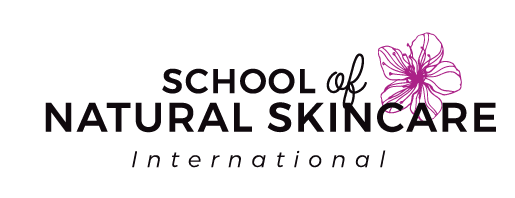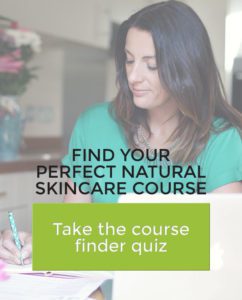As we age, our skin goes through various changes that affect its texture, appearance, and health. It’s important to adjust our skincare routine to address these changes and keep our skin looking and feeling its best. In this article, we’ll discuss the causes and characteristics of mature or aging skin, the best natural ingredients to combat it, and skincare solutions to help you look and feel your best.
We’ll focus on the following aspects:
- What is mature or aging skin?
- Causes of mature or aging skin
- The characteristics of mature or aging skin
- What are the best natural ingredients for mature or aging skin?
- 8 Skincare solutions for mature or aging skin
What is mature or aging skin?
Mature or aging skin is a term used to describe the changes that occur in our skin as we age. These changes can include a loss of elasticity, dryness, fine lines and wrinkles, age spots, and a dull complexion. The aging process is a natural part of life, but certain factors can accelerate it, such as sun exposure, pollution, smoking, and a poor diet.
The science behind skin aging shows that fat is lost below the skin in the face, specifically the cheeks, chin, nose, eye area and temples, which causes the skin to appear wrinkled and loose. Bone and cartilage loss cause the face to appear more skeletal-like and the bony structures may appear more accentuated.
Cumulative sun exposure can trigger melanin production causing uneven skin tone, hyperpigmentation and age spots.
How quickly and pronounced this occurs, depends on factors such as:
- Genetics.
- Lifestyle and environmental factors, including exposure to UV and pollution.
- Mechanical aging caused by muscle movements like smiling and frowning.
We’ve written two articles that give you some more information about the skin and how you can take your learning to that next level. Take a look at, Understanding How Your Skin Works and Learning skin anatomy & physiology: the key to formulating for different skin types.
Whilst this article focuses on aging and mature skin, you might be interested in other skin types too? We’ve written about dry skin here, oily and acne prone skin here and sensitive skin here.
Causes of mature or aging Skin
In general, the causes of mature or aging skin can vary, but some of the most common ones include:
Loss of collagen and elastin:
Collagen and elastin are proteins that give our skin its structure and elasticity. As we age, our body produces less of these proteins, leading to sagging and wrinkles.
Free radical damage:
Free radicals are unstable molecules that can damage our skin cells and accelerate the aging process. Exposure to environmental pollutants, UV radiation, and smoking can increase the production of free radicals.
Dryness:
As we age, our skin produces less oil, leading to dryness and a dull complexion.
Hormonal changes:
Hormonal changes during menopause can cause a decrease in estrogen levels, leading to thinning, dryness, and sagging of the skin.
Genetics:
Genetics can also play a role in how our skin ages.
Essentially, skin aging is classified into two categories:
The first is intrinsic aging – the natural or chronological aging of the skin. The second is extrinsic aging which is caused by external physical, environmental and chemical factors such as exposure to UV radiation. According to many sources, extrinsic aging accounts for over 70% of visible signs of aging.
Natural chronological aging contributes to the appearance of the skin through natural loss of subcutaneous tissues and supports, and decline in sebum production. Skin cells take longer to regenerate. Diminished sex hormones lead to dryness, wrinkling, epidermal atrophy, collagen breakdown and loss of elasticity.
Other, more controllable extrinsic factors will also actively contribute and accelerate skin aging and appearance:
- UV and environmental exposures:
Sunlight, or ultraviolet radiation (UVR) accelerates skin aging causing premature wrinkles and ‘sun spots’, also referred to as age spots, liver spots or solar lentigo. This process is known as photo-aging.
As skin ages, it thins, loses moisture due to transepidermal water loss, and becomes more dry and dehydrated. This is a normal process, however it may be accelerated or intensified due to UV damage.
Furthermore, exposure to environmental pollutants, synthetic toxins and carcinogens takes a toll on the skin’s health and appearance, as do everyday environmental elements such as wind, cold, rain and snow.
- Gravity, facial movement and sleep position can contribute to changes in the skin:
When the skin loses its elasticity, gravity causes drooping and looseness such as around the eyelids and jaw. Facial movement lines also become more visible and lines may appear in areas such as the forehead and around the mouth.
The characteristics of mature or aging skin
As we age, our skin also ages and changes to become more dry, dehydrated and rough feeling; wrinkled, slack and sagging; thin and more transparent; fragile and possibly more sensitive or prone to irritation.
Typically, aging skin is characterized by a number of visible signs and we have several listed here:
Dry skin:
A decrease in oil production can cause dryness and a dull complexion.
Rough skin and a dull looking complexion:
During the aging process, skin loses its softness, texture and color which makes it appear rough and dull. This happens as the barrier repair function reduces, the skin becomes dry and the skin cells slow down the rate of production.
Fine lines and wrinkles:
As we age, our skin becomes less elastic, leading to the formation of fine lines and wrinkles.
Age spots:
Exposure to UV radiation can lead to the development of age spots, which are flat, brown spots on the skin.
This leads to areas of saggy skin that have lost tightness, elasticity and tone.
Thinning of the skin:
As we age, our skin becomes thinner, making it more prone to bruising and tearing.
Hyperpigmentation:
As we age, our skin becomes less efficient at repairing damage caused by UV radiation and other environmental factors. This can lead to the accumulation of melanin, the pigment that gives our skin its color, in certain areas of the skin, resulting in dark spots, age spots, and other forms of hyperpigmentation. Additionally, hormonal changes that occur during menopause can also contribute to the development of hyperpigmentation in women. While hyperpigmentation is a natural part of the aging process, it can also be exacerbated by sun exposure, smoking, and other lifestyle factors.
Fortunately, there are natural ingredients and skincare solutions that can help reduce the appearance of hyperpigmentation and promote more even-toned, radiant-looking skin. So, help is at hand. Let’s take a look.
What are the best natural ingredients for mature or aging skin?
Using natural ingredients in your skincare routine can help combat the signs of aging and improve the health of your skin.
Here are twelve natural ingredients that are beneficial for mature or aging skin:
- Vitamin C:
Vitamin C is a powerful antioxidant that can help protect the skin from free radical damage and promote collagen production. Check out our article, Five essential vitamins to support skin elasticity, for more information about vitamins in skincare.
- Retinol:
Retinol is a form of vitamin A that can help reduce the appearance of fine lines and wrinkles and improve skin texture.
- Hyaluronic acid:
Hyaluronic acid is a hydrating ingredient that can help plump and firm the skin. To find out more about Hyaluronic acid, you’ll want to read our article, What is hyaluronic acid and how do you use it in natural skincare?
- Rosehip oil:
Rosehip oil is rich in antioxidants and essential fatty acids, making it a great choice for mature or aging skin. Have a look at our article, 9 Natural Benefits of Rosehip Oil for Your Skin, to learn more about rosehip.
- Coenzyme Q10:
CoQ10 is an antioxidant that can help protect the skin from free radical damage and improve the skin’s texture.
- Green tea extract:
Green tea extract is a powerful antioxidant that can help protect the skin from UV damage and reduce inflammation.
- Argan oil:
Argan oil is rich in vitamin E and essential fatty acids, making it a great choice for moisturizing and nourishing mature or aging skin.
- Aloe vera:
Aloe vera is a natural ingredient that can soothe and hydrate the skin, reducing inflammation and improving skin texture. We wrote an article all about Aloe Vera that you might find interesting. Take a look at it here.
- Niacinamide:
Niacinamide is a form of vitamin B3 that can help reduce the appearance of fine lines and wrinkles, improve skin texture, and reduce inflammation.
- Phyto-Retinol:
Phyto-retinol is a 100% natural ingredient that can produce similar skin benefits as retinol, including reducing the appearance of fine lines, wrinkles and improving collagen levels within the skin, but it’s much gentler than its synthetic equivalent. The result is an effective alternative to retinol that can be used in a natural anti-aging skin care product. It’s the natural retinol substitute we’ve been searching for!
If you’d like to find out more about Phyto-Retinol, check out our article, An Effective Natural Alternative to Retinol? Say Hello to Phyto-Retinol!
- Sea buckthorn oil:
Sea buckthorn oil is rich in antioxidants and essential fatty acids, making it a great choice for improving skin hydration, reducing inflammation, and promoting collagen production.
You’ll want to take a look at our article, Unlocking the Power of Sea Buckthorn in Natural Skincare: A Guide to Different Forms and Uses, for more information about this amazing ingredient 🙂
- Frankincense essential oil: Frankincense is an astringent, cytophylactic and emollient that encourages good skin tone, helps to reduce the appearance of fine lines and wrinkles and promotes healthy skin cell growth.
Remember to always research your ingredients first and check for any contraindications that might mean they are not suitable for you to use. Also, always patch test new ingredients and products and consult with a skincare professional if you have any concerns or questions about your skincare routine.
8 Skincare Solutions for mature or aging Skin
In addition to using natural ingredients in your skincare routine, there are several other skincare solutions that can help improve the health of your mature or aging skin:
- Use a gentle cleanser:
As we age, our skin becomes more delicate and prone to irritation. Using a gentle, non-foaming cleanser can help remove impurities without stripping the skin of its natural oils.
- Exfoliate regularly:
Exfoliating can help remove dead skin cells and promote cell turnover, revealing brighter, more radiant skin. However, it’s important to use a gentle exfoliator and avoid over-exfoliating, which can damage the skin.
- Use a serum:
Serums are concentrated formulas that can penetrate the skin deeply and deliver potent ingredients. Look for serums that contain antioxidants, hydrating ingredients, and collagen-boosting ingredients.
- Moisturize daily:
Keeping the skin hydrated is key to maintaining its health and preventing dryness and fine lines. Look for a moisturizer that contains natural, nourishing ingredients like hyaluronic acid, argan oil, or rosehip oil.
- Protect your skin from the sun:
UV radiation can cause free radical damage and accelerate the aging process. Use a broad-spectrum sunscreen with an SPF of at least 30 every day, even on cloudy days.
- Get enough sleep:
Getting enough sleep is important for maintaining the health of your skin. Aim for at least 7-8 hours of sleep each night.
- Eat a healthy diet:
Eating a diet rich in fruits, vegetables, whole grains, and lean protein can provide your skin with the nutrients it needs to stay healthy and vibrant. Ensure your diet is rich in antioxidants, and apply antioxidants topically to counter environmental free-radical damage to cells.
- Stay hydrated:
Drinking plenty of water can help keep your skin hydrated and improve its overall health.
A final piece of advice to help with this issue is to adopt a simple skincare regime, as early on as possible – which nourishes, hydrates, balances and gently cares for the skin.
It is best to cleanse with a mild cleanser which will not strip the skin’s natural oils and disrupt its delicate balance. Some people find that incorporating regular gentle exfoliation (one to two times per week, at most), keeps skin looking renewed, fresh and glowing.
Employ the use of anti-aging ingredients – some level of reversing skin aging and damage is possible with the help of certain high-performance ingredients. For example, retinoids like tretinoin (Vitamin A), found in rosehip seed oil, minimizes the appearance of wrinkles, boosts elasticity, fades sun damage and slows collagen breakdown in the skin. Antioxidants like Vitamin C, Vitamin E or coenzyme Q10 lower the oxidative stress in the skin. This helps to protect the skin from collagen breakdown.
AHAs are used as an anti-aging treatment; they can increase the skin’s elasticity and firmness, stimulate collagen synthesis, and help with hyperpigmentation and sun damage. They can help to brighten the skin and reduce the appearance of wrinkles and fine lines.
Licorice extract minimizes melanin production, evens out the skin tone of sun-damaged skin, and reduces the above.
Remember, we can’t reverse the aging process, but we can slow it down and age gracefully 🙂. There are plenty of ways to help and we hope this article is useful.
Why Making Your Own Skincare Products is Better than Buying Products
Mature or aging skin requires a skincare routine that addresses its specific needs. By using natural, nourishing ingredients and following a few simple skincare solutions, you can improve the health and appearance of your skin. With the right approach and ingredients, you can maintain healthy, vibrant, and youthful-looking skin well into your golden years.
If you choose to create your own natural skincare products, you’ll have a huge advantage because you can select the very best ingredients for your products that match your skin type, needs and preferences. When you make your own products, you have control over the ingredients and can ensure that you’re using natural, nourishing ingredients that are free from harsh chemicals and additives.
It’s also cheaper to make your own products than buying from a store because you don’t need to worry about paying all your business overheads or adding a profit margin on top. The good news for the budding beauty entrepreneur is it is cheap to make your own products so there is plenty of room for a profit between your cost price and sale price!
To find out more about pricing your natural beauty products, we wrote a couple of articles that you might find useful:
How do I Calculate my Natural Cosmetic Beauty Brand Prices to Make a Profit?
Pricing Your Natural Beauty Products for Profit: How to Calculate the Perfect Product Selling Price
The best thing to do if you want to formulate your own natural skincare products is learn from trained, qualified and experienced professionals. There’s a lot of inaccurate, misleading and incorrect information online and in books that leads to frustration, wasted time, effort and resources and ultimately, failed products that aren’t safe or stable.
By enrolling on the School of Natural Skincare’s online Diploma in Natural Skincare Formulation course, you’ll have everything you need to formulate your own complete range of natural skincare products from scratch, like the professionals, without having to follow other people’s recipes.
This comprehensive course covers everything from the basics of skincare formulation to advanced techniques for creating custom skincare products. You’ll learn how to use natural ingredients to create effective, nourishing products for mature or aging skin and gain the knowledge and skills you need to create your own formulations with confidence.
To find out more about the Diploma in Natural Skincare Formulation, go to the course page here, and download a copy of the course prospectus here. You might also like to take a look at our article, The Diploma in Natural Skincare Formulation: A Complete and Comprehensive Curriculum.
If you have any questions, please reach out to our customer service team by email using hello@schoolofnaturalskincare.com
FREE GUIDE:
The Beginner's Guide to Formulating Natural Skincare Products (From scratch, like a professional!)
Start creating your own natural skincare products
from scratch - rather than simply following recipes!
Exclusive for our newsletter subscribers. Sign up now.
Download this fabulous guide and you'll learn:
- What formulating is and why you need to be doing it!
- The difference between following recipes and formulating your own products.
- How to formulate like a pro! Seven top tips for becoming a confident skincare formulator.
- Our step-by-step process to designing products people love.
- Four easy ways to personalize your skincare products.
- Choosing the right carrier oils for your beauty products.
PLUS: Receive two free worksheets!

















